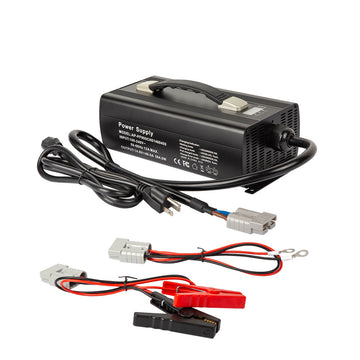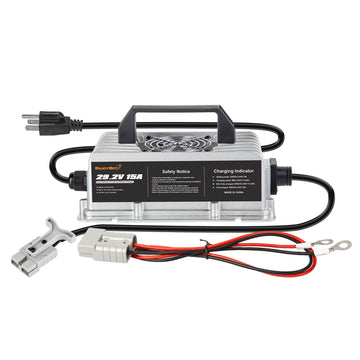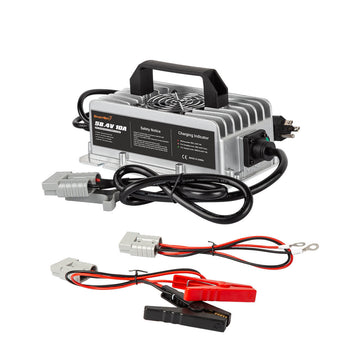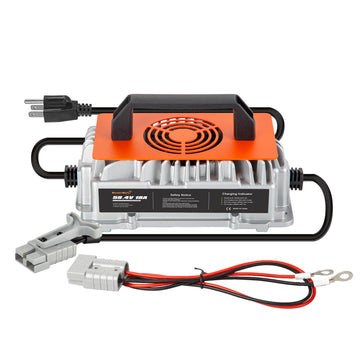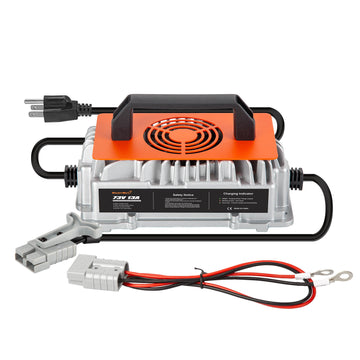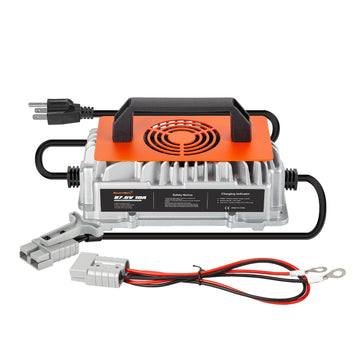BMS Security Solutions
BMS Security Solutions

A BMS (battery management system) should be all eyes and ears of a battery. It must keep a lookout, and take precautions to protect the battery from all possible mishappenings. Regarding the battery's safety and security, the BMS's common responsibilities include current and voltage control, thermal management solutions, fire protection, and cybersecurity.
A BMS on Guard of Your Battery
Rechargeable batteries are the key to energy storage systems (BESS). However, this is also a rather complicated and unstable component that users need careful handling and constant attention. But how are you going to fix it all? The BMS is the answer. This system is responsible for a variety of functions, and all of them are designed to get the most out of your battery within the longest possible time.
For instance, the BMSs can extend batteries’ lifespan and improve their performances by monitoring their charging and health status. By estimating the energy and power states in the battery pack and balancing cells inside the battery pack, it can fully utilize the potential of the battery and thus consequently your battery energy storage system.
Depending on the electrochemical properties of batteries, They may be very sensitive to constantly changing environments. Once going beyond the operating limits can be crucial for a battery and may lead to its degradation and untimely death.
The BMS inside of the LiFePO4 battery is equipped with multiple technical functions, such as sensors, modules, and fuses to predict potential hazards and protect both battery and the users. The BMS has also equipped with battery security systems that guard against thermal runaways, ground faults, and short circuits. Additionally, the BMS safety system can also transport data securely and guard against unauthorized usage of the battery storage system.
The BMS's real-time operating system (RTOS) enables the system to keep an eye on the battery packs, identify any potential dangers, and fix them in real-time. As a result, users can avoid costly repair and maintenance fees as well as premature battery replacement.
Voltage & Current Control
Users can control batteries' voltage and current in two principal ways. On the one hand, BMS will carry out overvoltage and overcurrent protection during charging, and on the other hand, the BMS will help to avoid Undervoltage as you discharge the battery.
Additionally, there are some sensors in the cells, which can control the battery's voltage and current to achieve higher reliability. The BMS will read data from these sensors, analyze them, and decide on what to do next.
Special note: all battery types have their recommended voltage and current limits for both charging and discharging. Additionally, the batteries' voltage correlates to the state of charge or SOC.
Thus, the BMS will use a breaker to cut off the circuit and cease charging the battery if the battery's current, voltage, or SOC exceeds the limit. Similarly, the BMS will react to the under-voltage in case of over-discharging. If the voltage of the battery or SOC drops below the threshold, the BMS will cut off the circuit and stop discharging.
To implement overvoltage and overcurrent protection, users would be better to choose the chargers that take to constant voltage/constant current battery charging method. You can charge the battery with a constant current until it reaches the specified voltage level. Then, when the current goes down, you can charge the battery with a constant voltage while the current goes down. Charging will be complete once the current reaches the lowest possible reading.
Thermal Management
One of the most critical safety precautions systems in the BMS design is thermal management. This relates to the batteries' temperature control and goes hand in hand with heating, cooling, and air conditioning.
The BMS thermal management system of lithium batteries can monitor whether the compliance of temperatures with preset limits. To measure the temperature inside or outside the battery, temperature sensors or thermistors semiconductor devices can be used, there is a strong correlation between temperature and resistance of these devices.
Temperature Performance for LiFePO4 batteries:
Operating Temperature (Charge) 0~50℃ (32℉~122℉)
Operating Temperature (Discharge) -20~60℃ (-4℉~140℉)
Operating Temperature (Storage) -10~50℃ (14℉~122℉)
Once the BMS detects a deviation from the specified values, it will take the necessary action to protect the battery, whether it is over-or under-temperatures.
For instance, a BMS can use thermal fuses and thermistors to prevent the battery from overheating during operation. They will disconnect the circuit and disable the battery if the temp rises too high.
Modern BMS relies on NTC or negative temperature coefficient thermistors. These technical functions have highly sensitive characteristics and can quickly identify any changes in resistance with high accuracy.
For the thermal management system of the BMS, lithium batteries have become the main focus of attention in terms of charging and discharging. First, you need to observe the temperature inside the battery to prevent thermal runaway and inflammation.
Secondly, users will have to protect themselves against adverse environmental conditions. Typically, all types of batteries are highly intolerant to extreme temperatures and have their suggested charge and discharge temperature limits. Operating above or below the ambient temperature ranges may lead to battery aging, capacity loss, and complete failure. However, the BMS can handle these by using battery fans, and avoid batteries getting failure or being damaged in extreme weather.
A thermal management system of BMS can control any out-of-limit variations. It can either turn off the charger or, the cooling system, heating, ventilation, and air conditioning system (HVAC) to regulate the temperature as needed.
One of the functions of BMS is heat dissipation, which can eliminate excess heat created by electrochemical reactions occurring in batteries. This covers both liquid and air cooling as well as air and fluid convection. Other heat transfer methods, such as conduction, convection, radiation, and phase changes, may also be useful.
Fire Protection
BMS is a very solid fire protection system that can prevent ignition caused by the intense chemical reactions of the battery during operation. When the system monitors a battery failure, BMS will instantly alert you and take immediate measures to protect the battery from unexpected risks.
Cybersecurity
Protecting the battery from operating out of limits is not the only concern a BMS can handle. Apart from a battery getting damaged or dead, you may be unwilling to have your system attacked or data stolen. So BMS can also safeguard your battery's Cybersecurity. Users have to secure their systems by implementing a variety of protection procedures.
Conclusion
Common lithium battery safety challenges comprise, under and overvoltage, overcurrent, under, overtemperature, etc. The responsibility of BMS is to protect the battery from a range of hazards and maintain safe working conditions.






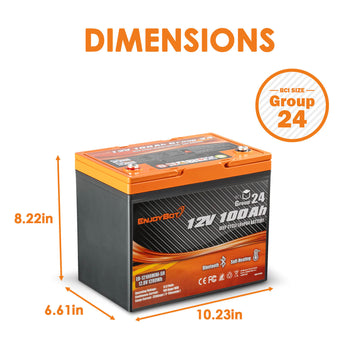


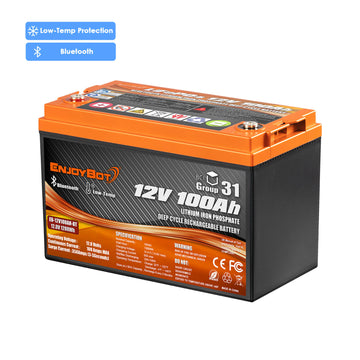
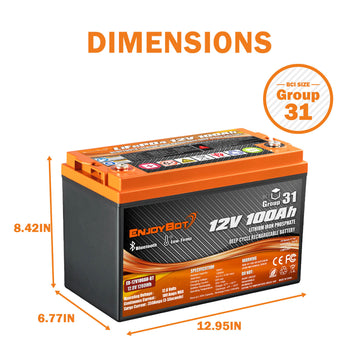





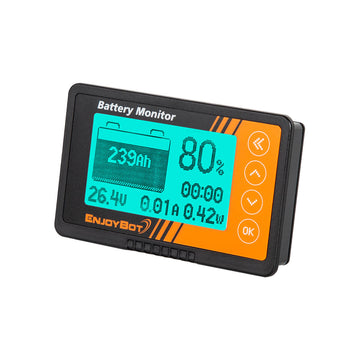

![[Upgraded Version] Enjoybot 14.6V 20A Waterproof Mountable LiFePO4 Lithium Battery Charger For 12V LiFePO4 Battery](http://enjoybotbattery.myshopify.com/cdn/shop/files/14.6V_20A_Waterproof_Battery_Charger_1_360x.jpg?v=1752565609)
![[Upgraded Version] Enjoybot 14.6V 20A Waterproof Mountable LiFePO4 Lithium Battery Charger For 12V LiFePO4 Battery](http://enjoybotbattery.myshopify.com/cdn/shop/files/14.6V_20A_Waterproof_Battery_Charger_2_360x.jpg?v=1752637374)
